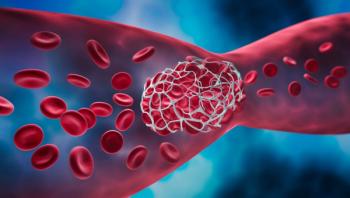
Treatment for Hemophilia: Many Decisions, Some Difficult, All Should Be Shared
The hemophilia organization developed a shared decision-making tool for patients and providers.
With the anticipated regulatory approval of novel hemophilia gene therapies, many in the hemophilia community have identified the need for and importance of people with hemophilia to fully participate in a shared decision-making process with healthcare professionals.
In a paper published last June in the journal
The authors describe shared decision-making as a position where “patients, and family members where appropriate, should be actively involved in an individually tailored, two-way discussion with their care provider, with patient preferences and concerns at the forefront.” Facilitating this type of interaction is critical with people with hemophilia who are often lifelong patients.
According to the paper, for people with hemophilia, challenges to shared decision-making can include disparities in health literacy, exposure to inaccurate or contradictory information via various news sources, including social media, and the complexity of gene therapy itself. In addition, direct-to-patient marketing, permissible in some countries, including the United States, may add confusion for some patients. Healthcare professionals on the other side of the interactions can also lack complete understanding of gene therapy or may have a skewed perception of their patients’ actual understanding of gene therapy.
The Council of the Hemophilia Community (CHC) was assembled to fill these informational gaps. The CHC is an interdisciplinary group of experts consisting of independent advisors, healthcare professionals, industry leaders, and patient representatives. The group held three roundtable meetings between November 2020 and May 2021 to understand the components of the patient experience through hemophilia gene therapy and develop a series of questions and answers to be used as a tool for guiding patient-centered discussions between healthcare professionals and their patients.
The CHC categorized five stages of the patient decision-making journey and aligned each question accordingly. These included pre-gene therapy information seeking, pre-gene therapy decision-making, treatment initiations, short-term post-gene therapy follow-up (1 year or less), and long-term post-gene therapy follow-up (longer than 1 year). Questions fell under several categories, including adherence requirements, treatment regimens, treatment predictability, variability, and durability, and the risks versus benefits of the treatment.
The authors cite the strengths of this tool as having a format that is easy to follow and ready for use. A limitation is a higher-than-average reading level for educational materials (10th-11th grade versus 5th- 8th grade levels). However, they note that this resource is intended to be used by healthcare professionals to individualize their discussions with each patient.
In the future, the authors hope that this tool will be updated and revised based on emerging clinical developments and feedback from the community. Although developed with hemophilia issues in mind, Wang and his colleagues comment that this resource could also be used in other diseases with treatment choices.
Newsletter
Get the latest industry news, event updates, and more from Managed healthcare Executive.

























